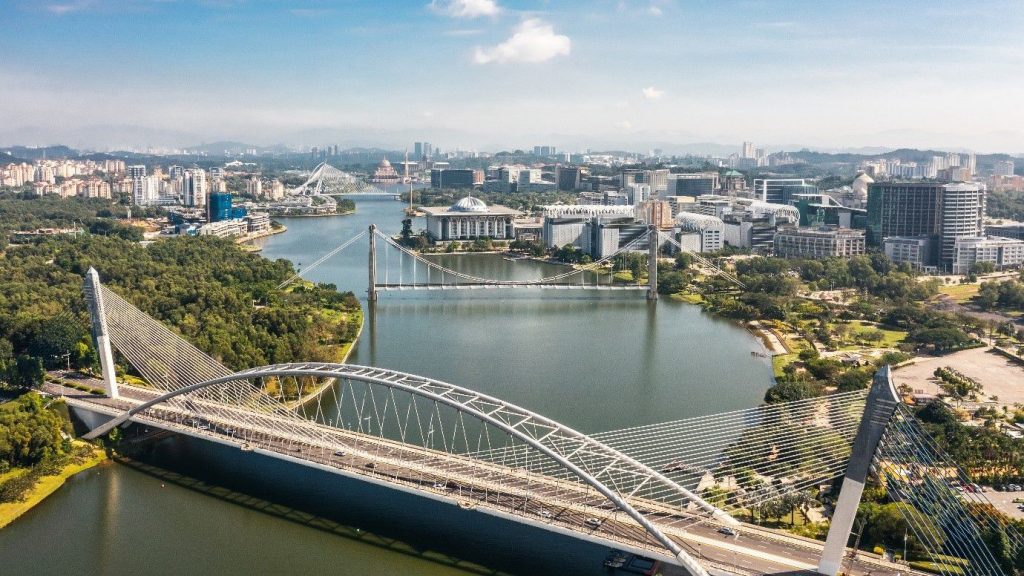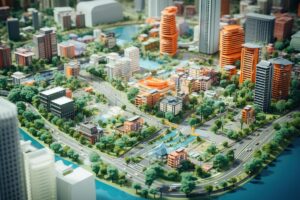Amid the rapid urbanisation of countries worldwide, spatial planning remains a crucial component in managing the growth and transformation of cities. In its stride towards urban development, Malaysia has also utilised this concept as a key tool in shaping its urban landscape.
In this article, we delve into the concept of spatial planning and its implementation in the Malaysian context.
What is Spatial Planning?
Spatial planning is a comprehensive practice that coordinates policies and goals related to public space and land use. The term is often interchanged with land use planning or urban planning. Its objective is to balance demands for development with the need to protect the environment and achieve social and economic objectives.
Additionally, the concept is essential for sustainable development, providing guidelines for constructing cities and towns that are efficient, equitable, and environmentally conscious.
Read More: Smart City in Urban Town Planning: Is It Coming Soon to Malaysia?
The Evolution of Spatial Planning in Malaysia
Malaysia’s journey in spatial planning can be traced back to the post-independence era when the focus was largely on rural development and agricultural advancement. As the nation transitioned into the industrial age in the late 20th century, the urban landscape expanded, necessitating effective planning strategies.
Over the decades, Malaysia has evolved to incorporate modern, sustainable, and technology-oriented approaches. This reflects Malaysia’s progress towards becoming a developed nation.
Current State of Spatial Planning in Malaysia
Today, spatial planning in Malaysia is an integrative process encompassing various sectors and government levels. It addresses pressing urban issues such as overcrowding, traffic congestion, and environmental degradation.
However, like many rapidly urbanising countries, Malaysia faces challenges in executing this sustainable practice. This includes balancing economic growth with environmental conservation and ensuring equitable access to urban resources.
Successful Examples of Spatial Planning in Malaysia

Malaysia’s success in implementing this practice is evident in cities like Putrajaya, the nation’s administrative capital. Planned from scratch, Putrajaya showcases efficient land use and sustainable urban practices. Moreover, the city harmoniously integrates administrative buildings, residences, and green spaces.
Penang, another example, also employs this practice to preserve its historical heritage while supporting modern urban development.
Its Importance for a Sustainable Future

Spatial planning plays an indispensable role in Malaysia’s pursuit of sustainable urban development. It provides a roadmap for the optimal use of land resources. Consequently, it guides development to meet present needs without compromising future generations.
Thus, by promoting compact, mixed-use development, the practice can help reduce vehicle dependence, lower carbon emissions, and enhance residents’ quality of life.
Read More: An Introduction to Malaysia’s Sustainable City
Looking Forward: The Future of Malaysia
As Malaysia strides towards becoming a fully developed nation, spatial planning will continue to evolve. For example, future planning strategies are expected to incorporate technological advancements. Such technology is big data and AI that offer more precise and efficient planning solutions.
Furthermore, community participation and inclusive planning are anticipated to become more pronounced, ensuring that it serves the needs of all residents.
To conclude, spatial planning is vital for managing urban growth and achieving sustainable development in Malaysia. As the country continues its urban development journey, this concept will remain at the forefront, guiding the transformation of Malaysia’s urban landscape.
As the leading urban planner in Malaysia, PEQ Consult is deeply involved in our journey towards sustainable planning. Leveraging our reliable expertise in town planning and management, we offer a comprehensive suite of services tailored to Malaysia’s urban needs.
Reach out to us to learn how we can aid in shaping a sustainable and equitable urban future for Malaysia!













